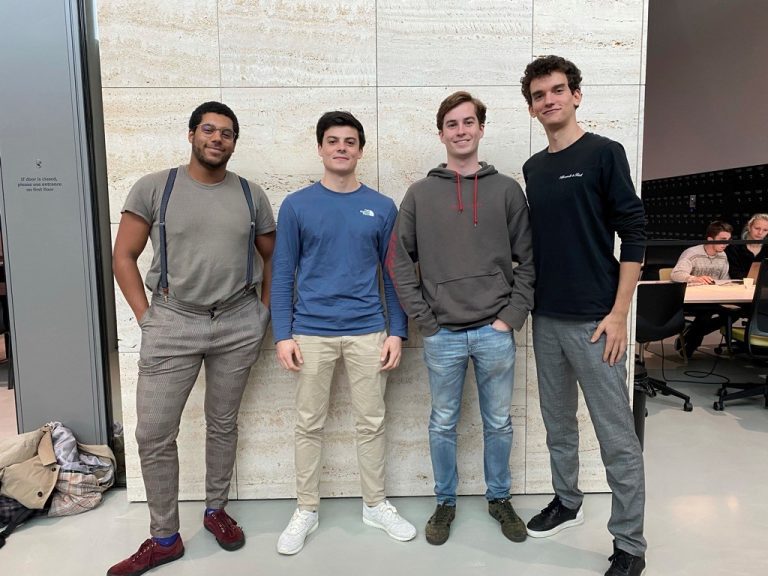These students want to save the coral reef (and you can help)
Four Delft students from the TPM-minor international entrepreneurship and development have started a crowdfunding to restore 500 square metres of dead or damaged coral reef near the Indonesian island of Lombok. Alexandru, Joppe, Tadé and Xavier need 5000 euros to buy four ‘reef aquaria’ in which they can grow coral reefs in a fully controlled climate.

Tadé Whenu, Xavier Hubbelmeijer, Joppe Roorda and Alexandru Bobe (from left to right). (Photo: Kim Pham)
The students will use, among other things, the technique of micro-fragmentation, by which the coral is cut into small ‘polyps’ with a special kind of chainsaw. This technique stimulates tissue growth in such a way that the coral can grow back up to fifty times faster. The students want to use another technique, called ‘assisted evolution’, to ensure that the coral reefs can withstand higher temperatures and acid levels in the world’s seas. Once the corals in the tanks have grown sufficiently, they can be released into the sea, where they can continue to grow.
In an email, Tadé poignantly describes the importance of protecting coral reefs. “With coral reef extinction, 25 per cent of all marine life is at risk of disappearing. In addition, between 500 million and 1 billion people worldwide depend on the coral reef for income, tourism, food, medication and protection from extreme waves. We cannot afford to lose the coral reef.”
You can find more information and make a contribution here.
Do you have a question or comment about this article?
s.m.bonger@tudelft.nl

Comments are closed.